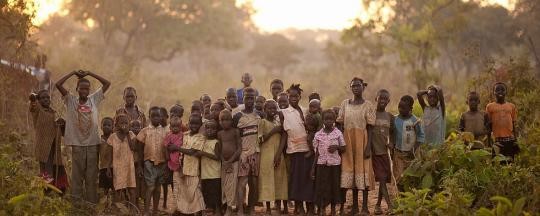There have been mixed feelings across South Sudan in reaction to news that last year’s security agreement will be implemented and oil production is to resume. While citizens in the national capital, Juba, hailed the decision others in the border state of Northern Bahr el-Ghazal have expressed concerns over their protection as the SPLA are to ‘pull back’.
A number of citizens Radio Tamazuj interviewed in the national capital have expressed their satisfaction with the agreement, which will ensure that a demilitarisation pledge last year is carried out by both Sudanese and South Sudanese armed forces along the shared border. SPLA Spokesman, Philip Aguer, announced the D-Day for the demilitarisation process on Sunday while addressing viewers on SSTV.
Some citizens were particularly pleased to see the resumption of oil production and transit through Sudan’s pipelines and noted that they believe the agreement to be of benefit for both countries, particularly as they expect wages and services to improve.
“Yes we are suffering, especially the schools. Hospitals are lacking a lot of services and as salaries of the people are still being reduced, now people are crying. This is why we wish for these things to be open and work for us in South Sudan in order to realize development in all the sectors,” one citizen from Juba’s Hai Kator claimed.
They urged both governments to implement the agreement urgently in order to be able to resume the production of oil, which is one of the sole sources of income for South Sudan.
However, some citizens from Northern Bahr el-Ghazal have expressed serious security concerns over the agreement to withdraw troops from mile 14, a name given to the expected buffer zone.
One elderly man in the state who wanted to remain anonymous expressed his fears over whether the United Nations will be able to protect citizens in the army’s absence, criticizing its protection of residents in neighbouring Abyei.
“The decision made was not good because the UN forces that are said to be deploying in those areas will fail to protect our lives and property, like what they are doing in Abyei,” he exclaimed.
Another man added that, “It was good for the two governments to move their forces from the buffer zone but what about other armed tribes like the Misseriya and Rizeigat that are always raiding Dinka Malual and Ngok-Dinka.”
One of the women interviewed said that civilians in the disputed area of Kiir Adem and other places are being protected from SAF attack by the SPLA and so questioned who may be able to protect them if the SPLA forces along mile 14 are to be relocated.
Meanwhile, the state government’s spokesperson, Nyibol Ajonga, has proclaimed Northern Bahr el-Ghazal state government’s support for the move.
“We are supporting the decisions made by the President of the Republic of South Sudan, Salva Kiir Mayardit, of moving inward the SPLA forces from mile 14 because the people and border all belong to the nation.”
Both parties have agreed that police from the UN’s Abyei peacekeeping force, UNISFA, will be deployed although it is not yet clear what level of protection they will be able to afford people residing in the border lands.
Both countries have suffered economically following South Sudan’s shut down of the oil production early last year. Attacks by the Sudan Armed Forces on civilian areas in disputed territory triggered displacement across the region, particularly from areas in and around Northern Bahr el-Ghazal state. Similarly, conflict between the two nations on the disputed oil fields of Heglig left many commentators speculating about the possibility of war.
Photo by Samartin’s Purse: Nuba refugee children in Yida area




